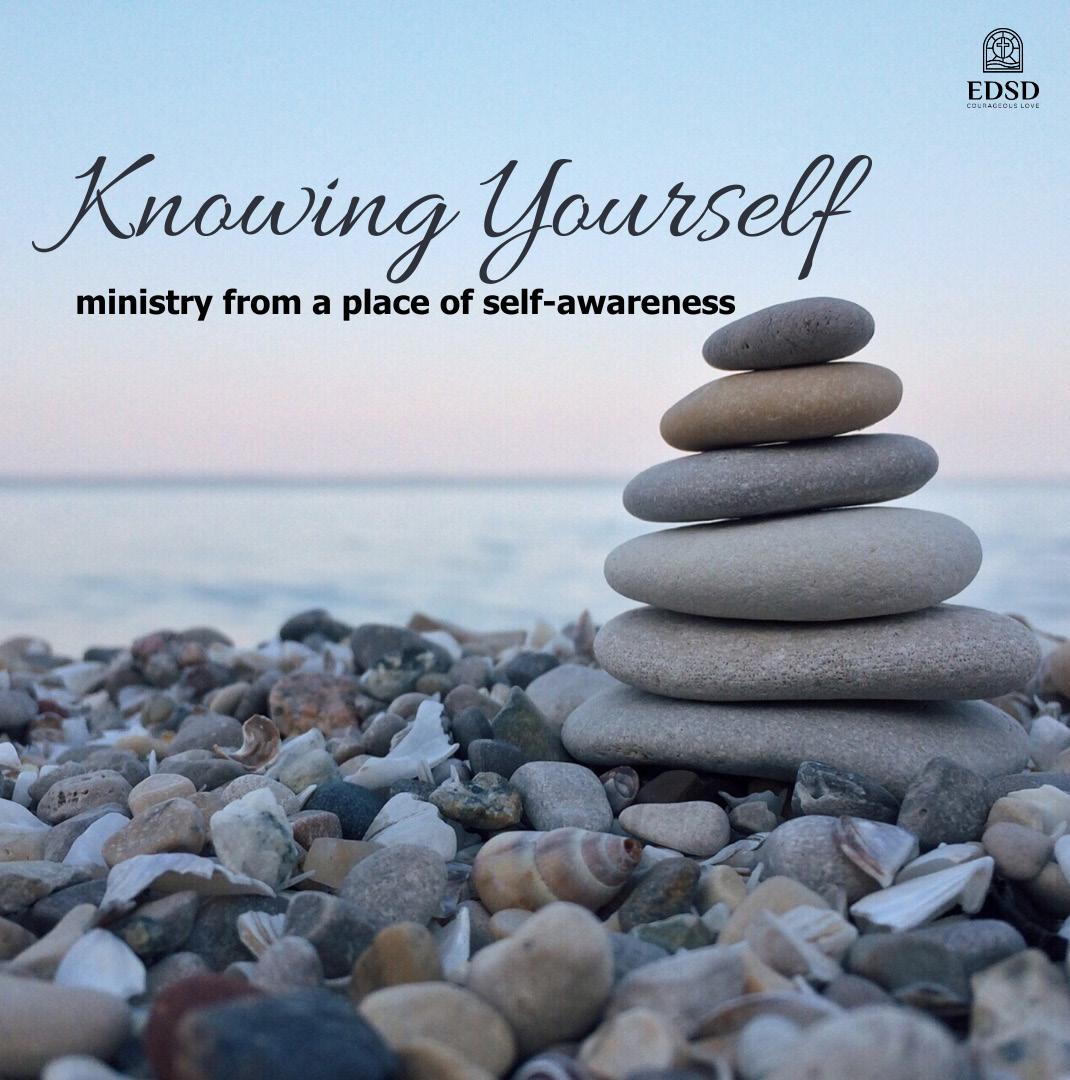

Produced by: The Episcopal Diocese of San Diego
Compiled by: Charlette Preslar, EDSD Director of Formation
Edited by: Chris Tumilty, EDSD Director of Communications
Designed by: Chris Tumilty, EDSD Director of Communications
Lent is a sacred journey—forty days of reflection as we prepare our hearts for the joy of Easter. In this Year of Discipleship, we are called to walk more closely with Christ, deepening our faith through prayer, study, and action. In this book, members of the Episcopal Diocese of San Diego—clergy and laypeople alike—offer their voices in prayerful reflection, guiding us through scripture, personal experiences, and the deep well of our shared faith. May these reflections inspire you to embrace the call of discipleship and discover God’s transforming love in this holy season.
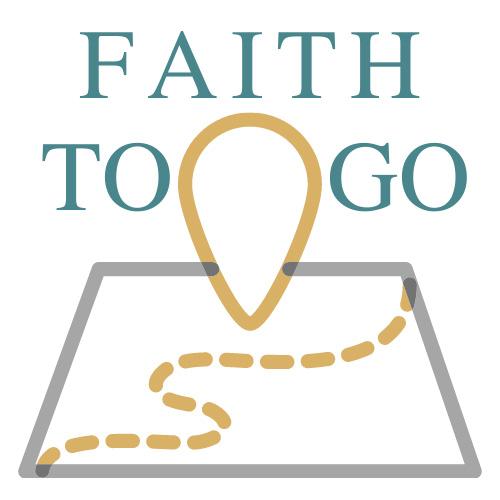
www.edsd.org/faithtogo
Day 1: Ash Wednesday, March 5
Matthew 6:1-6, 16-21
“Be careful not to practice your righteousness in front of others to be seen by them. If you do, you will have no reward from your Father in heaven.
“So when you give to the needy, do not announce it with trumpets, as the hypocrites do in the synagogues and on the streets, to be honored by others. Truly I tell you, they have received their reward in full. But when you give to the needy, do not let your left hand know what your right hand is doing, so that your giving may be in secret. Then your Father, who sees what is done in secret, will reward you.
“And when you pray, do not be like the hypocrites, for they love to pray standing in the synagogues and on the street corners to be seen by others. Truly I tell you, they have received their reward in full. But when you pray, go into your room, close the door and pray to your Father, who is unseen.
Remember that you are dust, and to dust you shall return. It’s an odd thing to say in a Christian church, where we proclaim that Jesus has defeated death and brought us to eternal life. Why do we remind each other today of our dustiness, our grittiness, the impermanence of our bodies and our very lives?
The key to what we celebrate today is the word “remember.” When we say you are dust, and to dust you shall return – that is simple fact. Every molecule of our bodies came from the dust of the universe that blew outward from the Big Bang, the dust that formed stars and planets, the dust that formed this earth. Out of that dust our bodies were made, and when we die, those molecules of US will be recycled for other uses. We are dust, and to dust we shall return.
But the key to Ash Wednesday is not the fact of our dustiness. The key is the word “remember.” When we remember that we are dust, we remember
not just our death, but the other part of our faith, that God willed every molecule of our selves into being. We remember that God looked at the dusty, beautiful world, and called it “very good.” We remember how God reached into the dust and lovingly handled it, rolled it, breathed into it, to create human beings. We remember that we are holy and beloved. We remember that our own God took on the dust of human existence with his own life in Jesus. We remember that God welcomed our holy human dustiness as he welcomed Jesus back into God’s presence.
“Remember that you are dust, to dust you shall return” means, remember that the very dust of your body is forever linked with the creator of the universe. Remember that your dusty humanity has been washed in the water of baptism and made a part of Christ’s own Body. Remember that the ashy cross marked on your forehead is drawn over the same place where you were marked with the sign of the cross at your baptism, when someone said, You are sealed with the Holy Spirit in baptism and marked as Christ’s own forever.
This day, this Ash Wednesday, this day of dust, is a day not of death but of resurrection. We remember that we are dust, and to dust we shall return, but that’s not the end of the story. The last chapter of Good Friday was followed by the new story of Easter. The end of our dusty human lives will be followed by the new creation of resurrection. You are dust, and to dust you shall return. Thanks be to God.
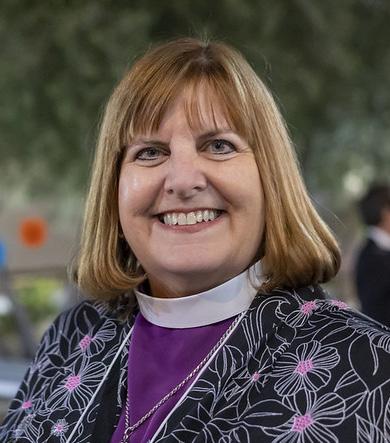
Bishop Susan Brown Snook is a dedicated leader in the Episcopal Church, committed to church growth, discipleship, and social justice. She fosters vibrant congregations and ministries, emphasizing evangelism and community outreach. Her episcopacy is guided by the theme Courageous Love, calling the Church to bold faith, compassion, and action.
Day 2: Thursday, March 6
Luke 9:18-25
Once when Jesus was praying alone, with only the disciples near him, he asked them, ‘Who do the crowds say that I am?’ They answered, ‘John the Baptist; but others, Elijah; and still others, that one of the ancient prophets has arisen.’ He said to them, ‘But who do you say that I am?’ Peter answered, ‘The Messiah of God.’
He sternly ordered and commanded them not to tell anyone, saying, ‘The Son of Man must undergo great suffering, and be rejected by the elders, chief priests, and scribes, and be killed, and on the third day be raised.’
Then he said to them all, ‘If any want to become my followers, let them deny themselves and take up their cross daily and follow me. For those who want to save their life will lose it, and those who lose their life for my sake will save it. What does it profit them if they gain the whole world, but lose or forfeit themselves?
There certainly aren’t a lack of opportunities to pick up our crosses in this wild and – for many of our neighbors, terrifying - time. When the call to be merciful is heard as a threat rather than a blessing. When the hungry, the stranger, the sick, and the imprisoned are targeted by the state rather than recognized as the way we most intimately encounter Christ.
The challenge for me in this time is figuring out which, of the many opportunities, is my cross to pick up. The burden I can handle and the ones my friends can take on aren’t the same. In the same situation, I probably would not have had Bishop Budde’s courage to speak the Gospel in love and respect. But her experiences prepared her for that moment, and she had the courage to take up her cross boldly, without forfeiting herself. I am unlikely to actually lose my life for God’s sake. But speaking up for
the sake of God’s mercy and justice, advocating for those who have been denied power in our society, and witnessing my understanding of God’s expansive love suddenly feels like it comes with more risk than it has in my lifetime. Christ’s reminder today is that, regardless of what we or others have to say about Him, our actions are what mark us as believers in the Messiah. It’s not easy, it’s not without risk, but it is the fulfillment of the greatest promise for humanity.
I pray for the courage to take up my cross – in whatever form it comes – today and every day. To keep God’s promise of salvation and demand for mercy at the core of my life. And to be willing to lose comfort to keep from losing myself.
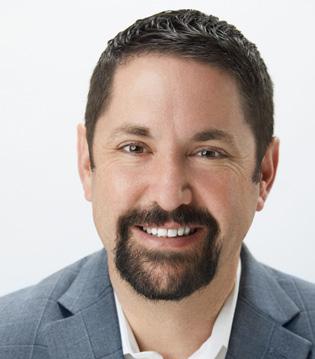
David Jay is a member of Good Samaritan in San Diego. Nourished in formation by many congregations, clergy and lay leaders across the diocese for more than 30 years, he now works through Good Sam’s JUSTAction! ministry, an affiliate of the San Diego Organizing Project, to advocate for a moral economy and true justice for all members of our community.
Day 3: Friday, March 7
Matthew 9:10-17
And as he sat at dinner in the house, many tax collectors and sinners came and were sitting with Jesus and his disciples. When the Pharisees saw this, they said to his disciples, “Why does your teacher eat with tax collectors and sinners?” But when he heard this, he said, “Those who are well have no need of a physician, but those who are sick. Go and learn what this means, ‘I desire mercy, not sacrifice.’ For I have not come to call the righteous but sinners.”
Then the disciples of John came to him, saying, “Why do we and the Pharisees fast often, but your disciples do not fast?” And Jesus said to them, “The wedding attendants cannot mourn as long as the bridegroom is with them, can they? The days will come when the bridegroom is taken away from them, and then they will fast. No one sews a piece of unshrunk cloth on an old cloak, for the patch pulls away from the cloak, and a worse tear is made. Neither is new wine put into old wineskins; otherwise, the skins burst, and the wine is spilled, and the skins are ruined, but new wine is put into fresh wineskins, and so both are preserved.”
When I was growing up, one of our family traditions was to give up something we each loved for Lent. I invariably gave up candy, because I love chocolate. As an adult, I gave up shopping, because I love shoes, or coffee, because I need caffeine. The goal was to refocus the energy we spent on external things to our relationship with God. But for me, denying myself something for 40 days was a bit problematic, since I spent much of the time thinking about the potential chocolate bunny in my Easter basket or the latte and pair of shoes I’d buy on Easter Monday.
In today’s reading, both the Pharisees and John’s followers are needling Jesus about his lifestyle, asking why he’s eating with sinners and - come to think of it - why he and his disciples are celebrating at all and not fasting like they are. Jesus responds with examples of renewal – healing the sick,
repairing cloth, storing old and new wine. And right in the middle of these stories, Jesus tells them to “Go and learn what this means, ‘I desire mercy, not sacrifice,” a quote from the prophet Hosea. “Desire” here is sometimes translated “require;” God requires mercy, not sacrifice.
Jesus calls us to new ways of seeing and being God’s work in the world and shows us how - by loving God and our neighbors as ourselves, even when it’s tough to do so. Jesus is all about restoring this broken world into God’s dream of loving community, which requires patience and grace. Before we discard those who we think don’t belong in this new creation – the sinners, the old wine, the frayed cloak, those on the margins, and even ourselves from time to time - we might turn toward Jesus’ example of compassion for all.
Give up the chocolate, coffee, shoes, or your own personal habit, if that practice brings you closer to God during this Lenten season. But let’s be tender with ourselves and others on this journey of transformation and remember that God desires – requires - “mercy, not sacrifice.”
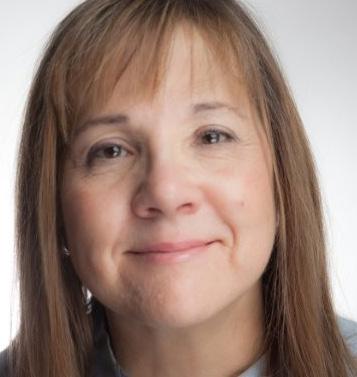
TheRev.GigiMillerisalong-timememberofSt. Andrew’s in Encinitas and recently ordained to the diaconate. She serves in several ministries at St. Andrew’s, including Saturday Breakfast, a program offering a hot breakfast in conjunction with Showers of Blessings, mail distribution, health, and county services to our neighbors in need.
Day 4: Saturday, March 8
Luke 5:27-32
After this he went out and saw a tax-collector named Levi, sitting at the tax booth; and he said to him, ‘Follow me.’ And he got up, left everything, and followed him.
Then Levi gave a great banquet for him in his house; and there was a large crowd of tax-collectors and others sitting at the table with them. The Pharisees and their scribes were complaining to his disciples, saying, ‘Why do you eat and drink with tax-collectors and sinners?’ Jesus answered, ‘Those who are well have no need of a physician, but those who are sick; I have come to call not the righteous but sinners to repentance.’
It was very clear to me that, taking into the context of the social dynamics at the time, Levi was a deeply problematic individual in the Jewish community–being a Jew himself and also being a tax collector. Many of the lessons from this particular piece of scripture are applicable not just that time, but also to modern life. Today, there are people that are outcast or ostracized for one reason or another that society doesn't accept, but when Jesus comes and says to Levi, follow me–Levi does not hesitate. Levi follows him without hesitation–and at such a simple command that Jesus gives to Levi. And when we read this first section of Scripture, it's very clear how the grace of God flows out onto Levi, and the spirit touches Levi in such a way, and Jesus's presence touches Levi in such a way that he leaves behind his life of sin. Later, within the passage, we learn that Levi is wealthy enough to host a banquet at his house, and to be wealthy enough at that particular time to host such a banquet, (with these religious leaders and the disciples of Jesus) might suggest that he was a gluttonous man–someone who had money and wealth in such an impoverished society.
But I also think about when the Pharisees come to Jesus and they complain and they say, essentially, you're a hypocrite. Jesus's answer is particularly
touching for me because I didn't grow up Christian. I grew up an atheist, and I felt spiritually sick while I was an atheist. Jesus says, “those who are well have no need of a physician, but those who are sick.” And when I came to Jesus, I felt that type of pull to Jesus.
The final quote: “I have come to call not the righteous, but sinners to repentance.” In reflection, I focus heavily on sin. (And when I talked to my priest about that, he pointed that out as well.) The reason why is that I feel a more, let's say, solemn faith. I am a deeply repentant person, and I feel the weight of my sins very heavily on my shoulders. And when Jesus says that he calls sinners to repentance, I am a part of that group.
And I think that Scripture makes it very clear that to some degree, all people are sinners. And so all people are called to Jesus Christ and repentance. And that's something that I reflected on as I've been alone at my house, and I've prayed a lot about it.
Maybe I'm like the Pharisees where I have a double standard, or I call people hypocrites when I myself cannot see the log in my own eye. But through Jesus Christ, following him as Levi did, his sacrifice on the cross and his resurrection, that is something that even though I will never be sinless, I pray that I can partake in that heavenly kingdom with Him one day, by being a better person and a follower of His.
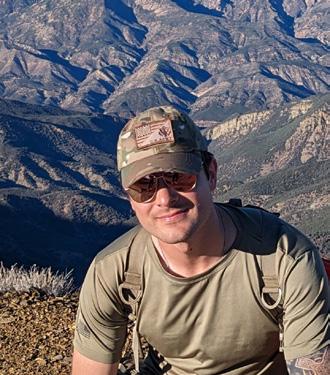
Stefan Henning is a parishioner at St. John the Evangelist congregation in Indio, California. He recently graduated with a Master of Public Administration and is a Sergeant in the United States Army Reserve. He participates in St. John's military ministry, capital work projects, various other church events, and is a lay eucharistic minister.
Day 5: Monday, March 10
Matthew 25:31-46
‘When the Son of Man comes in his glory, and all the angels with him, then he will sit on the throne of his glory. All the nations will be gathered before him, and he will separate people one from another as a shepherd separates the sheep from the goats, and he will put the sheep at his right hand and the goats at the left. Then the king will say to those at his right hand, “Come, you that are blessed by my Father, inherit the kingdom prepared for you from the foundation of the world; for I was hungry and you gave me food, I was thirsty and you gave me something to drink, I was a stranger and you welcomed me, I was naked and you gave me clothing, I was sick and you took care of me, I was in prison and you visited me.” Then the righteous will answer him, “Lord, when was it that we saw you hungry and gave you food, or thirsty and gave you something to drink? And when was it that we saw you a stranger and welcomed you, or naked and gave you clothing? And when was it that we saw you sick or in prison and visited you?” And the king will answer them, “Truly I tell you, just as you did it to one of the least of these who are members of my family,you did it to me.” Then he will say to those at his left hand, “You that are accursed, depart from me into the eternal fire prepared for the devil and his angels; for I was hungry and you gave me no food, I was thirsty and you gave me nothing to drink, I was a stranger and you did not welcome me, naked and you did not give me clothing, sick and in prison and you did not visit me.” Then they also will answer, “Lord, when was it that we saw you hungry or thirsty or a stranger or naked or sick or in prison, and did not take care of you?” Then he will answer them, “Truly I tell you, just as you did not do it to one of the least of these, you did not do it to me.” And these will go away into eternal punishment, but the righteous into eternal life.’
When I was in fourth grade, our hot lunch program required the students to purchase lunch tickets every morning so that the cafeteria personnel would know how much food to prepare. Sometimes kids would forget their lunch money. Sometimes there was no money for lunch. There was often
shaming around food. I know what it feels like. I forgot my lunch money once and my teacher told me she would pay for my lunch this once, but I had better remember to pay her back and never forget my money again.
Right now, eight states provide breakfast and lunch at all schools at no charge, no questions asked. Ten states provide no assistance whatsoever and the balance of the states provide either reduced lunch or free breakfast to the kids who need breakfast. Reduced lunch is shaming. Free breakfast to those kids who can’t pay is shaming. In this country where so much food is thrown away daily, food shaming should not occur. It’s food. They’re kids. Give them the food. Is that so much to ask? Isn’t that what Jesus asks? Jesus is calling on all of us and using some strong language to get his point across. Jesus’ words are not a suggestion. Jesus’ words are a mandate. No excuses.
It’s easy to point fingers and say” See those people over there? They don’t have jobs. Jesus can’t possibly mean for me to accept in all those people from other countries, right? That guy asking for money is just going to spend it on drugs.”
It’s also easy to say “I’ll donate but I have no time to help. I can’t spend the afternoon serving, I’m expected to be at a family party today. You know, I have a hard time with that group’s language skills, so I can’t sit and eat with them.
I’m reminded of these words from Keith Green’s ‘The Sheep and the Goats’.
And Lord, when were You thirsty and we didn't give You drink? I mean, that's not fair Well, would You like something now?
Day 5: Monday, March 10
Matthew 25:31-46
Lord, when were You naked?
I mean, Lord, that's not fair either, Lord
We didn't know what size You wear
Oh Lord, when were you a stranger, Lord?
You weren't one of those creepy people who used to come to the door, were You?
Oh Lord, that wasn't our ministry, Lord
We just didn't feel led, You know?
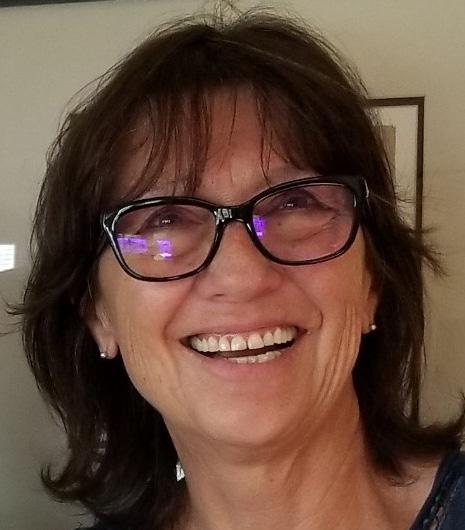
My name is Cindy Dodson and I been a member of St. Mary’s in the Valley in Ramona for almost 15 years. I have been studying for the Diaconate for more than and year and in January of this year, as a Postulant, I was given my Field Work assignment. I will be a part of Trinity in Escondido for the better part of 2025. One of the ministries that I have been part of for well over three years involves feeding the hungry and helping the stranger. I have taken part in efforts to help people who migrate here, via our southern border, locate their loved ones, understand their immigration status papers and find their flight information. I coordinate meal making and delivery to asylum seeking people waiting at the airport for their flight to family, job, safety. I feel that these passages from Matthew speak directly to me.

Day 6: Tuesday, March 11
Matthew 6:7-15
‘When you are praying, do not heap up empty phrases as the Gentiles do; for they think that they will be heard because of their many words. Do not be like them, for your Father knows what you need before you ask him.
‘Pray then in this way:
Our Father in heaven, hallowed be your name. Your kingdom come. Your will be done, on earth as it is in heaven. Give us this day our daily bread. And forgive us our debts, as we also have forgiven our debtors. And do not bring us to the time of trial, but rescue us from the evil one.
For if you forgive others their trespasses, your heavenly Father will also forgive you; but if you do not forgive others, neither will your Father forgive your trespasses.
Matthew 6:7-15 offers Jesus’ teaching on prayer, focusing on the simplicity and sincerity of our communication with God. Jesus talks against empty repetition in prayer, reminding us that God already knows our wants and needs. Rather, it stresses the importance of genuine, heartfelt prayer with God. The Lord's Prayer is a model, focusing on God's holiness, the coming of His kingdom, daily provision, forgiveness, and deliverance from evil. The Lord’s Prayer reminds us that prayer is not just about personal requests but about aligning ourselves with God's will and purposes. In the end, it emphasizes the need for forgiveness. Jesus teaches that just as God forgives us, we are called to forgive others. This underlines the
importance of mercy in our faith, encouraging us to reflect God's love and forgiveness in our relationships with others. Overall, this passage invites us to approach prayer with humbleness, genuineness, and a heart aligned with God's kingdom, while also extending forgiveness as we’ve received it.
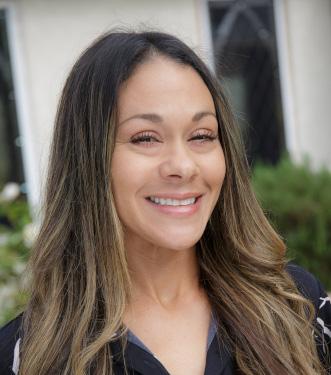
AlysonTerrywasbornandraisedhereinSanDiego County. She has a 21-year-old daughter, Kali, and a 5-year-old bulldog named Maui. She is a newly baptized & confirmed member of the Episcopal church and attends Resurrection Church in Ocean Beach. She is also a member of the EDSD BIPOC Leadership Team, and Diocesan Registrar since 2018.
Day 7: Wednesday, March 12
Luke 11: 29-32
When the crowds were increasing, he began to say, ‘This generation is an evil generation; it asks for a sign, but no sign will be given to it except the sign of Jonah. For just as Jonah became a sign to the people of Nineveh, so the Son of Man will be to this generation. The queen of the South will rise at the judgement with the people of this generation and condemn them, because she came from the ends of the earth to listen to the wisdom of Solomon, and see, something greater than Solomon is here! The people of Nineveh will rise up at the judgement with this generation and condemn it, because they repented at the proclamation of Jonah, and see, something greater than Jonah is here!
What is the sign of Jonah that Jesus refers to?
The call to repentance echoes deeply in the season of Lent, reminding us that God’s mercy always surpasses His judgment. In Luke 11:29-32, Jesus confronts a crowd seeking miraculous signs, declaring that no sign will be given except the sign of Jonah. This reference links us to Jonah’s reluctant journey to Nineveh, where his simple proclamation, "Forty days more, and Nineveh shall be overthrown!" (Jonah 3:4), sparks an extraordinary response. The entire city, from the king to the cattle, repents and turns toward God.
This is a sign that challenges complacency, exposes sin, and invites transformation. Jesus, the greatest prophet, embodies this sign through His life, death, and resurrection. Just as Jonah spent three days in the belly of the fish, Jesus spends three days in the tomb, rising to offer the ultimate invitation to repentance and renewal.
Nineveh’s response serves as both an inspiration and a warning. The Ninevites did not demand proof of Jonah’s authority; instead, they heeded the message and acted with humility and urgency. Jesus calls us to the
same response. As we journey through Lent, how often do we wait for a dramatic sign before taking action? Are we, like the crowd in Luke’s Gospel, missing the signs already before us—in the Scripture, in the Sacraments, in the voices of those in need?
The good news is that God’s mercy is always within reach. Jonah’s story assures us that no one is beyond redemption, and Jesus’ invitation to repentance is for all. This Lent, let us open our hearts to the transformative power of God’s grace. May we, like Nineveh, respond without hesitation, allowing the sign of Jonah to guide us into deeper communion with the God who desires to save. Amen.
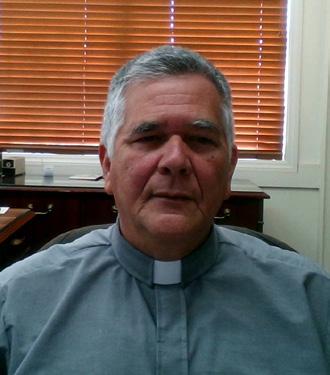
My name is Carlos Eduardo Expósito Irarragorri. I was born and raised in Camagüey, one of Cuba´s bigger cities in the eastern part of the country. I have a B.A. in Lingustics, and one in Theology as well. I was ordained an Episcopal priest in Cuba in 2010, and served in different parishes and missions in that diocese. I also served in diocesan committees. In November 2019 I started ministering as the rector of All Saints’ San Diego, and am still serving in this parish. I served as a member of the Diocesan Council from 2020 to 2024.
Day 8: Thursday, March 13
Matthew 7:7-12
‘Ask, and it will be given to you; search, and you will find; knock, and the door will be opened for you. For everyone who asks receives, and everyone who searches finds, and for everyone who knocks, the door will be opened. Is there anyone among you who, if your child asks for bread, will give a stone? Or if the child asks for a fish, will give a snake? If you then, who are evil, know how to give good gifts to your children, how much more will your Father in heaven give good things to those who ask him!
‘In everything do to others as you would have them do to you; for this is the law and the prophets.
God is everything in our lives, full of Love, tenderness, and mercy. He gave us life. So when the Lord Jesus Christ said, “Ask and it will be given to you, seek and you shall find, knock and the door will be opened to you,” that is the Lord Jesus Christ encouraging people to ask God for whatever they need–no matter how big or great the request is. God calls us to trust in him and believe that He meets all our needs. God teaches people to search for what they want to know in their lives, even if it is knowing God himself, for He makes Himself known to us in different ways. God speaks to us in our feelings and teaches us to knock on the doors of opportunities. They open for us and help us navigate our daily lives in the right way. God gives us confidence and security that whoever searches will find what they are looking for, and whoever knocks will have them opened for them.
And when the Lord Jesus Christ said, “Which of you, if his son asked for bread, will give a stone? Or if he asks for a fish, will give him snakes? If you, then, though you are evil, know how to give good gifts to your children, how much more will your Father in heaven give good gifts to those who ask him!” In this parable, the Lord Jesus Christ uses the example of a father who gives good gifts to his children. That is the Lord Jesus Christ shows
that God is a heavenly father who will give good things to those who ask. Sometimes He give us good gifts even without us asking because of his love an mercy.
And when the Lord Jesus Christ said, “So in everything do to other what you would have them do to you, for this sums up the law and the prophets,” this is often called the “Golden Rule.” The Lord Jesus Christ tells people to treat others the way they want to be treated. So we have to treat people the way they want to be treated. The rule makes every human being think about not harming their fellow human because every one of us wants people to treat them in a good way. So we also have to treat people in the same way. He also said that there are laws that were established by Sharia and the prophets to serve humanity and not to hinder humanity’s life. God is the heavenly father of us all. He wants good for us, and asks us to bear good fruits. This means doing good deeds and treating people with love, mercy and wisdom. This path is really difficult, but if we start it, God will help us and give us strength, courage, power and wisdom to be able to enter through the narrow gate to obtain eternal life.
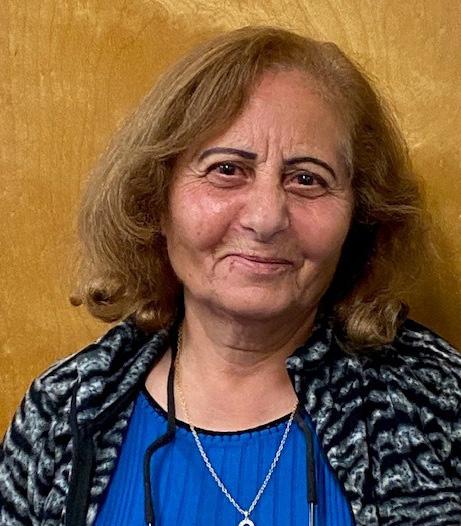
Mary Zori was born in Iraq and has dedicated her life to faith and service. After years in the Chaldean Catholic Church, she left Iraq for Syria, where she stayed for nine months before immigrating to the United States. She found a spiritual home at St. Alban’s, where she actively serves in worship, translation, and outreach. Through her leadership in ministry, assisting with communion, and supporting Arabic-speaking members, she shares Christ’s love and holds a deep commitment to her faith.
Day 9: Friday, March 14
Matthew 5:20-26
For I tell you, unless your righteousness exceeds that of the scribes and Pharisees, you will never enter the kingdom of heaven.
“You have heard that it was said to those of ancient times, ‘You shall not murder,’ and ‘whoever murders shall be liable to judgment.’ But I say to you that if you are angry with a brother or sister, you will be liable to judgment, and if you insult a brother or sister, you will be liable to the council, and if you say, ‘You fool,’ you will be liable to the hell of fire. So when you are offering your gift at the altar, if you remember that your brother or sister has something against you, leave your gift there before the altar and go; first be reconciled to your brother or sister, and then come and offer your gift. Come to terms quickly with your accuser while you are on the way to court[d] with him, or your accuser may hand you over to the judge and the judge to the guard, and you will be thrown into prison. Truly I tell you, you will never get out until you have paid the last penny.
If you could have one wish, what would it be? Wealth? Power? Good health? For many of us (including me) the answer might be the reconciliation of a fractured relationship. As I read today’s Gospel passage, the phrase that jumps out at me is “first be reconciled to your brother or sister, and them come and offer your gift”. I have struggled through much of my adult life with a fractured relationship with my oldest son. Drug addiction and incarceration separated us and I found myself frequently angry and in a position where I found it hard to forgive. Prayer was a daily source of strength and hope. However, I often found it difficult to pray for my own forgiveness when I myself was unable to forgive. It was only through making peace with my son that I was able to pray to God for my own peace.
Today’s passage is taken from the Sermon on the Mount and is part of a larger discussion by Jesus about the importance of following God with our hearts and not just adhering to a legalistic view of God’s commandments. Jesus is clear that the law is important but that there is more to our relationship with our Lord besides following a set of rules. Many of us pray the Lord’s Prayer as part of our daily spiritual practice; in that prayer we ask God to “forgive us our trespasses as we forgive those who trespass against us”. Perhaps Jesus is making the point that we can’t love God without loving our neighbor; we can’t be reconciled with God without seeking reconciliation with those around us. “Righteousness” for God includes love and forgiveness for others as well as adherence to the law. We are called to follow God’s commandments…and we are reminded that the first commandment is to love.
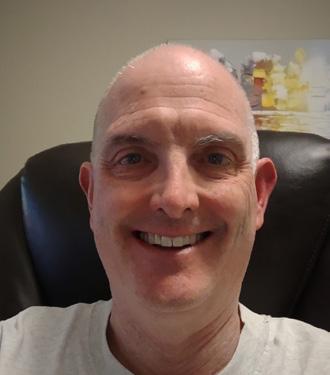
My name is Andy Waters. I grew up in North Carolina but have lived in California since I was in high school; I am a Navy veteran/retired Federal employee and did most of my 40 years of work at the Naval Hospital in San Diego. I am a lifelong Episcopalian and am currently a congregant at St. Timothy’s Episcopal Church in Rancho Penasquitos. I am presently a member of the Diocesan Finance Committee and the Diocesan Human Resources Committee and am also serving as the interim treasurer at St. David’s in Clairemont.
Day 10: Saturday, March 15
Matthew 5:43-48
‘You have heard that it was said, “You shall love your neighbour and hate your enemy.” But I say to you, Love your enemies and pray for those who persecute you, so that you may be children of your Father in heaven; for he makes his sun rise on the evil and on the good, and sends rain on the righteous and on the unrighteous. For if you love those who love you, what reward do you have? Do not even the tax-collectors do the same? And if you greet only your brothers and sisters,what more are you doing than others? Do not even the Gentiles do the same? Be perfect, therefore, as your heavenly Father is perfect.
I saw this saying on a t-shirt of a child and immediately wanted one. At first glance, it appears to be a very simple, non-ostentatious, goes-withanything type of t-shirt. However, the simplicity of the shirt couldn’t be farther from the truth of the statement. Loving thy neighbor is a lot more complex than a white shirt with black lettering. In today’s scripture, Jesus addresses loving all neighbors (including enemies), and clearly implies, through several wondering questions, that this action is not as simple as it appears. So, it seems that if we are to do the action of loving thy neighbor, we must first know who thy neighbor is.
During the Epiphany season we read the passage of Jesus’s baptism at the Jordan River by John the Baptist. Jesus began his ministry by waiting in a line with a bunch of ordinary, sinful, lost people...enemies, neighbors, brothers and sisters. He made himself one of them. One of us. He could have pushed his way through the crowds to be at the front of the line and gotten baptized first. Afterall, his own cousin was doing the baptizing. But instead, Jesus chose to stand among all the people, in community, and became a part of our human messiness.
Jesus continues to choose to be a part of the world’s messiness throughout
his entire life by the people he associated with: the ordinary men he chose to be his disciples, the sick people he healed, the women he trusted, the sinners he welcomed at his table, even the forgiveness he offers a murderer while dying himself. He never pushes to the front to be separate but rather perfectly reflects a God of love that also chooses not to separate himself from us. A God that gathers all as his children and calls them Beloved. Although the action of loving all thy neighbors will never be the easy path, the choice can be as simple as the white shirt with black lettering, don’t separate yourself out. Choose to live your life like Jesus, in community with all, and where all are welcome, as neighbors.

Leighton is a wife, mom of two and a lifelong Episcopalian from the South. She is a graduate of the University of Alabama with a Masters in Nursing Leadership. She currently serves as the Director of Children and Youth Ministries at St. James By-theSea and as the Children and Youth Missioner for the Diocese. Outside of work, she serves as a board member for Vida Joven Foundation and a member on the St. James Outreach Committee. Leighton enjoys traveling, baking, strong coffee, any type of arts & crafts, and a good charcuterie board.
Day 11: Monday, March 17
Luke 6: 27-38
Jesus said, “I say to you that listen, Love your enemies, do good to those who hate you, bless those who curse you, pray for those who abuse you. If anyone strikes you on the cheek, offer the other also; and from anyone who takes away your coat do not withhold even your shirt. Give to everyone who begs from you; and if anyone takes away your goods, do not ask for them again. Do to others as you would have them do to you.
“If you love those who love you, what credit is that to you? For even sinners love those who love them. If you do good to those who do good to you, what credit is that to you? For even sinners do the same. If you lend to those from whom you hope to receive, what credit is that to you? Even sinners lend to sinners, to receive as much again. But love your enemies, do good, and lend, expecting nothing in return. Your reward will be great, and you will be children of the Most High; for he is kind to the ungrateful and the wicked. Be merciful, just as your Father is merciful.
“Do not judge, and you will not be judged; do not condemn, and you will not be condemned. Forgive, and you will be forgiven; give, and it will be given to you. A good measure, pressed down, shaken together, running over, will be put into your lap; for the measure you give will be the measure you get back.”
I really like the bible passage, It is making me take a very deep dive into how I have been serving Christ, as well as how I want to serve him and most of all how he wants me to serve him. I must say this is a very challenging exercise for me. That I often find myself struggling with. A few key words came to mind as I read the passage several times. The first one is I SAY TO THOSE THAT LISTEN! We all can listen, however do we accept what we are hearing? Most of all do we act upon what we are hearing? Do I want to follow what I'm hearing, or do I want to allow my human nature to decide what I am able to follow? Great question right?
How can you love someone that has harmed you or your loved ones? How can you love someone that constantly degrades you, talking behind your back, spreading lies, making you portrayed inferior in the eyes of others? This really test your following to what I hear in my heart from God! I can for a moment forgive, move forward, be nice and kind to that person(s). Thinking, if I treat the person with respect after they have wronged me, they too will react in a positive way and I will be treated by them in the same fashion that I am treating them. However what happens when you turn around and that person (s) once again continues over and over with their same derogatory comments, lies about you? Great question right?
In my case another word comes to mind JUDGING, I judge this person as a bad person, not worthy of my friendship or even to have any kind of contact with. Come to think of it, God calls me not to judge the person and simply forgive as many times as needed! Simple, right? The next words that stood out go hand in hand (MEASURE YOU GIVE and LEND TO RECEIVE). Let's take LEND TO RECEIVE, first, since the Christmas season just passed us. I am reminded of how growing up and even as an adult of the thoughts of expecting to receive more than what I was giving. The expectation of material things, this can really make us upset and judgmental of others (what a cheapskate, the present I gave was more expensive) Thus the second phrase MEASURE YOU GIVE.. I think I do much better with these two phrases, as when I give. I don't expect material things in return, but rather at least a THANK YOU. Is that right? Perhaps the only expectation I should have is the satisfaction of knowing I was able to give! I Am really enjoying this exercise, what came to my mind just now is that, the best gift I could give is telling someone about the most important gift, which is eternal life through our Savior Jesus Christ.
I still have not fully given my response to this part. Iam especially puzzled when I travel across the border and encounter several persons in need asking for money. I usually like to keep a few dollar bills to hand out,
Day 11: Monday, March 17
Luke 6: 27-38
especially to the kids and elderly. However the scriptures state to give to anyone that asks! Can I in fact give to every person I encounter? This is something, I will need to continue in prayer to find the right thing to do.
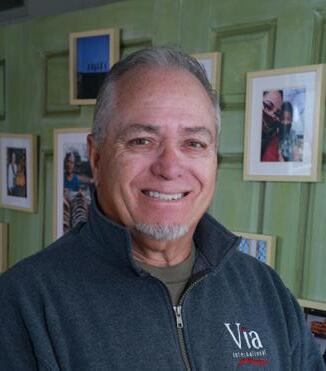
Robert Vivar serves as EDSD Migration Missioner and keeps congregations informed and up to date on Immigration and Border Issues on bothsides of the Border as well as implementing proactive actions in support of our communities. He oversees construction upgrades and related efforts for the opening of Comunidad De Luz, Migrant Women and Children shelter in Tijuana.

Day 12: Tuesday, March 18
Matthew 23:1-12
Jesus said to the crowds and to his disciples, “The scribes and the Pharisees sit on Moses’ seat; therefore, do whatever they teach you and follow it; but do not do as they do, for they do not practice what they teach. They tie up heavy burdens, hard to bear, and lay them on the shoulders of others; but they themselves are unwilling to lift a finger to move them. They do all their deeds to be seen by others; for they make their phylacteries broad and their fringes long. They love to have the place of honor at banquets and the best seats in the synagogues, and to be greeted with respect in the marketplaces, and to have people call them rabbi. But you are not to be called rabbi, for you have one teacher, and you are all students. And call no one your father on earth, for you have one Father—the one in heaven. Nor are you to be called instructors, for you have one instructor, the Messiah. The greatest among you will be your servant. All who exalt themselves will be humbled, and all who humble themselves will be exalted.
The notes in my Bible state that this passage is the opening of the fifth discourse of Jesus in Matthew’s Gospel, with this entire chapter devoted to criticism of the religious leadership of the day. The opening salvos are mild compared to the rest of the chapter . . . Jesus is speaking to me here. As priest, I am the one who gets to wear the long robe, the beautiful stole, and the chasuble with gold threads and embroidery. I am the one who sits at the front, who stands up to speak and to teach and people are expected to listen (or at least to sit quietly while scrolling their phone!). Jesus is speaking to me, calling me to account. I must search my heart, my motives, my beliefs. I am to live the life that I preach, to remove the burdens from the shoulders of others, and to always, always point to Jesus. I must humble myself.
Jesus might be aiming his words at religious leadership, but there’s a message for those not in leadership. Look to God, look to Jesus, and don’t be too enchanted or intimidated by your religious leaders. Don’t let
themlaythoseheavyburdensuponyou,whiledoingnothingthemselves.
Lastweek,CharlettePreslarmisreadtheclosinglineofthispassagewhile recordingFaithtoGo.“Allwhoexaltthemselvesshallbehumbled,andall who humble themselves will be exhausted.” It’s a hilarious mistake, but also a telling one. Certainly, discipleship is not always easy, and there is often a burden to bear as we do Christ’s work in the world. We are called to do it together, called to do as Christ has taught us, called to bear each other’s burdens, and called to humble ourselves before God.
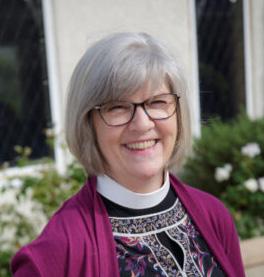
The Rev. Canon Gwynn Lynch serves as the Canon to the Ordinary in the Episcopal Diocese of San Diego, supporting clergy transitions, congregationalleadership,anddiocesaninitiatives. PriortojoiningtheBishop'sstaff,shewasPriest-inCharge at Grace Episcopal Church, San Marcos, and has held leadership roles in the diocese, includingStandingCommitteepresident.Ordained tothepriesthoodin2005,sheispassionateaboutministryandformation, also serving as chaplain for diocesan camps and leadership programs.
Day 13: Wednesday, March 19
Luke 2:41-52
Jesus said to the crowds and to his disciples, “The scribes and the Pharisees sit on Moses’ seat; therefore, do whatever they teach you and follow it; but do not do as they do, for they do not practice what they teach. They tie up heavy burdens, hard to bear, and lay them on the shoulders of others; but they themselves are unwilling to lift a finger to move them. They do all their deeds to be seen by others; for they make their phylacteries broad and their fringes long. They love to have the place of honor at banquets and the best seats in the synagogues, and to be greeted with respect in the marketplaces, and to have people call them rabbi. But you are not to be called rabbi, for you have one teacher, and you are all students. And call no one your father on earth, for you have one Father—the one in heaven. Nor are you to be called instructors, for you have one instructor, the Messiah. The greatest among you will be your servant. All who exalt themselves will be humbled, and all who humble themselves will be exalted.
One of the songs that I learned in Sunday School many moons ago, ‘Trust and Obey’ came to mind after reading this passage. During the second semester of my freshman year in college, a classmate told me to send my application for the US Navy. I thought about it but I also did not want to waste the 4-year scholarship that someone from Belgium has given me. A few weeks later, he reminded me to send the application for the window of opportunity is closing very soon. I sent the application with a prayer asking God to remove any obstacles that might stop me from joining the US Navy, if this is His will. About six months later, I was at the San Diego Naval Training Center. Today, trusting and obeying God shapes my ministry as a member of the Order of St. Luke. When there are times that God seems to ignore my prayers, I obey Jesus’ reminder in one of his parables to keep praying to God and I trust that at the right time, God will answer my prayer with what is best for me or for the person I am praying for.
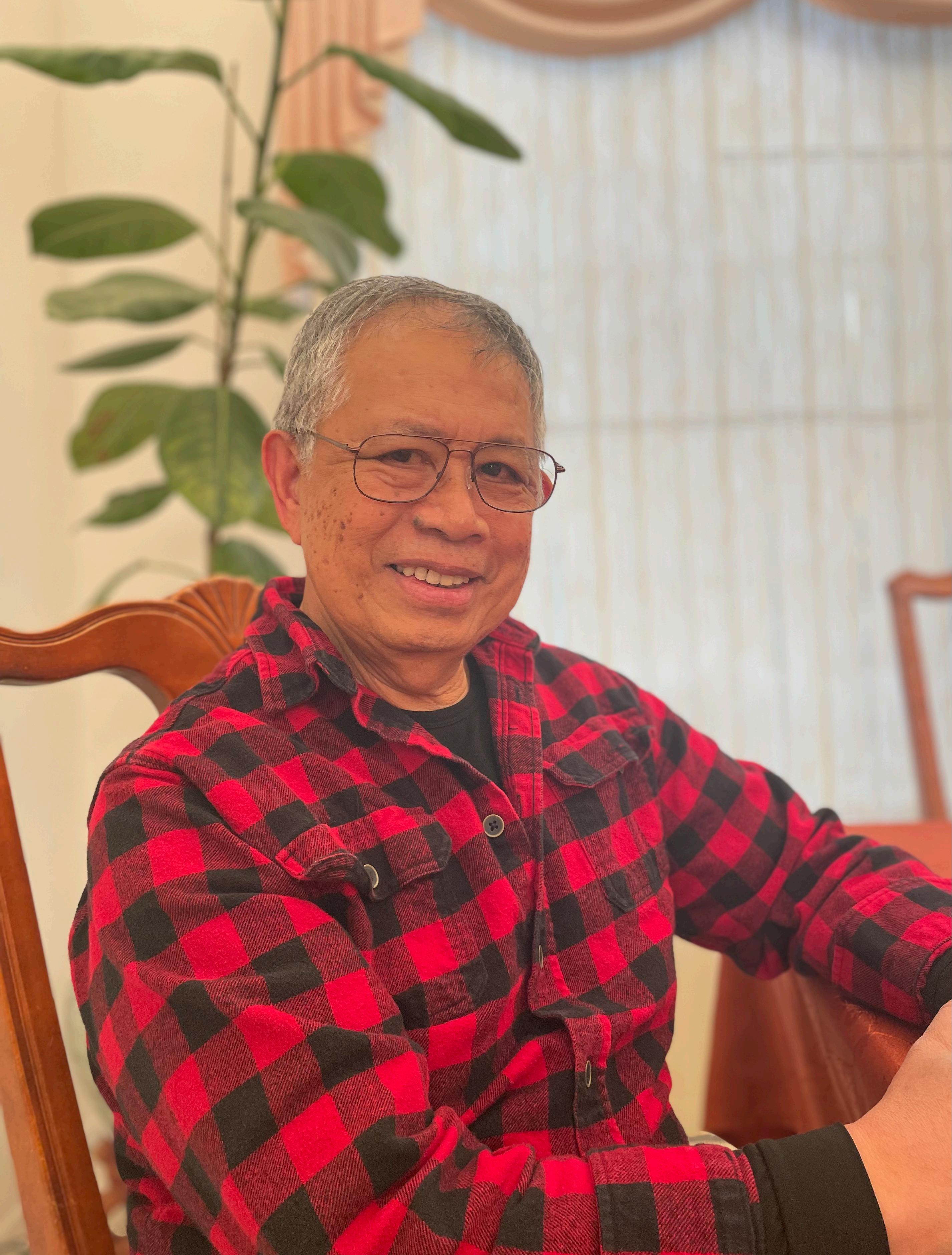
James Ambasing was born in Baguio City, Philippines. He joined the US Navy in 1971, got out and earned a BS in Business Administration (Information Systems) from San Diego State University. He is a member of The Church of the Good Shepherd, Bonita and of the Order of St. Luke, South Bay Chapter.
Day 14: Thursday, March 20
Luke 16:19-31
‘There was a rich man who was dressed in purple and fine linen and who feasted sumptuously every day. And at his gate lay a poor man named Lazarus, covered with sores, who longed to satisfy his hunger with what fell from the rich man’s table; even the dogs would come and lick his sores. The poor man died and was carried away by the angels to be with Abraham. The rich man also died and was buried. In Hades, where he was being tormented, he looked up and saw Abraham far away with Lazarus by his side. He called out, “Father Abraham, have mercy on me, and send Lazarus to dip the tip of his finger in water and cool my tongue; for I am in agony in these flames.” But Abraham said, “Child, remember that during your lifetime you received your good things, and Lazarus in like manner evil things; but now he is comforted here, and you are in agony. Besides all this, between you and us a great chasm has been fixed, so that those who might want to pass from here to you cannot do so, and no one can cross from there to us.” He said, “Then, father, I beg you to send him to my father’s house—for I have five brothers—that he may warn them, so that they will not also come into this place of torment.” Abraham replied, “They have Moses and the prophets; they should listen to them.” He said, “No, father Abraham; but if someone goes to them from the dead, they will repent.” He said to him, “If they do not listen to Moses and the prophets, neither will they be convinced even if someone rises from the dead.”’
The story centers on the reversal of fortunes that takes place after Lazarus and the rich man die. This reversal after death is ultimate. An unbridgeable chasm exists between Lazarus at Abraham’s side and the rich man in Hades. It links agony or comfort after death with how we treat the less fortunate around us. Our fate with eternal life manifests with how we treat the hungry and thirsty, strangers, the naked, the sick, and those in prison. It is the great equalizer.
The story of the rich man and Lazarus might be difficult to absorb for many North Americans. Our lifestyles stand in sharp contrast with a majority of people in the world who live on much less. Like so much else that Luke says about money and possessions, our relative prosperity stands as a stinging indictment not only of the great confidence we place in financial security, but also of the drastic inequities between rich and poor…inequities that we allow to perpetuate.
The parable in Luke chapter 16 seeks to refocus us on what we do with what we have, and if and how our vocations serve our neighbors. Virtue is not determined by wealth, type of employment, gender, immigration status, political or financial power or body type. Virtue is borne out in deeds.
Luke makes clear that the poor are a focus of Jesus’ ministry. In his inaugural sermon, Jesus declares that he has been anointed by the Spirit of the Lord “to bring good news to the poor.” Jesus admonishes his followers to not just invite to their parties the friends and neighbors who can repay them, but to extend their invitations unconditionally to the poor, the crippled, the lame, and the blind.
The parable illustrates the need to help others. This should be in our Christian nature and ways. As Christians we are accountable for the least of these in our society.
Fear of suffering after death may not be a good motivator. But compassion, vocation, stewardship, and gratitude can be. Everything to be done has already been done. We have been given all we need.
Yes…..eternal life is the true equalizer!
Day 14: Thursday, March 20
Luke 16: 19-31
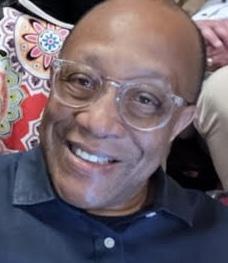
Vince Walton and his family joined St. Thomas of Canterbury in 2007 after moving to the Murrieta/ Temecula area. Originally from Cincinnati, Ohio, Vince graduated from the nationally recognized School for the Creative and Performing Arts before earning a Bachelor’s Degree in Communications from Bowling Green State University. His career has spanned pharmaceuticals, wireless communications, and telecommunications, and he now serves as a Business Strategy Consultant for Salesforce, working closely with PayPal.
Deeply committed to the Episcopal Church, Vince has served on the Bishop’s Committee for multiple terms and has contributed to various ministries, including choir, communications, and racial reconciliation programs like Sacred Ground and LARK. He has also held leadership roles as Junior and Senior Warden. Vince and his wife, Monica, have two children, Alexander and Lauren. He brings his passion for service, leadership, and faith to his work in the church and community.

